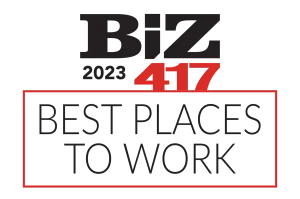
The Collapse of First Republic Bank: Implications for the U.S. Banking Crisis and Real Estate Sector

The recent failure of First Republic Bank has sent shockwaves through the U.S. banking industry, raising concerns about the ongoing banking crisis and its potential impact on real estate investors and the real estate bank. The San Francisco-based lender’s downfall came after wealthy clients withdrew their deposits, resulting in over $100 billion in deposit declines during the first quarter. First Republic Bank’s focus on high net-worth customers and preferential rates on mortgages and loans made it more susceptible to collapse than regional lenders with less-affluent clientele.
A significant factor contributing to First Republic’s demise was its high level of uninsured deposits, coupled with a decrease in the value of its loan book and investment portfolio as the U.S. Federal Reserve raised interest rates. In response to the troubled bank’s situation, JPMorgan Chase & Co. agreed to acquire most of its assets after regulators intervened. The ongoing banking crisis in the U.S. is expected to further impact the economy, where its exact outcome is impossible to predict, as indicated by notes from the Federal Reserve’s March policy meeting. Via the meeting minutes: “The U.S. banking system is sound and resilient. Recent developments are likely to result in tighter credit conditions for households and businesses and to weigh on economic activity, hiring, and inflation. The extent of these effects is uncertain.” Staff economists at the Federal Reserve have been predicting subdued growth and a weakening economy since November 2022, with the recent banking crisis exacerbating these concerns to potentially include a recession.
In light of the turbulence in the banking industry and concerns about potential bank runs, policymakers at the Fed unanimously voted for a smaller interest rate increase last month. The latest rate hike brought the federal funds rate to a range of 4.75% to 5%, the highest level since September 2007. The combination of banking stress, slowing inflation, and a cooling labor market could signal the end of the Fed’s rate-hiking campaign. The seizure of First Republic Bank by regulators and the subsequent sale of most of its operations to JPMorgan Chase follows the high-profile failures of Silicon Valley Bank and Signature Bank, which have shaken the banking system. JPMorgan Chase assumed First Republic’s deposits and most of its assets, with its 80+ offices in eight states reopening as Chase branches. The bank’s collapse was partly due to panic among clients of regional banks and billions in unrealized losses from its large book of single-family mortgages.
Get In Touch With The Real Estate Investor News Team If You Want To Know More About Buying And Financing Investment Properties
Catering to high-net-worth individuals, a significant portion of First Republic’s deposits were uninsured. The bank’s failure and acquisition by JPMorgan Chase could have far-reaching implications for real estate investors and the real estate bank, as it alters the landscape of available financial services and lending options. A staple in and around Boston, First Republic catered to numerous real estate brokers and their primarily affluent clientele. As E.J. Schneider, a partner at the law firm Dalton & Finegold LLP, whose firm represented the interest of wealthy home buying clients, said: “The Boston real estate community could always count on First Republic,” Schneider said. “Whether residential, commercial, business or nonprofit lending, the bank always showed up and delivered on their word.”
While the last-minute save by JPMorgan Chase did help avoid the potential panic of a complete collapse (and JPMorgan Chase shares rose by 2.1%), shares of regional banks tracked by the SPDR S&P 500 Regional Bank exchange-traded fund, fell by 2.9%. Shares of PacWest Bancorp slipped by 10.6%. Shares of First Republic Bank have continued to remain frozen since Monday morning.
As the U.S. banking crisis unfolds, industry professionals and real estate investors will closely monitor the situation to assess its impact on the real estate sector and the broader economy. The collapse of First Republic Bank serves as a stark reminder of the potential consequences of the ongoing banking crisis. It underscores the need for vigilance and proactive measures to mitigate further damage. Could the fall of First Republic Bank serve as the final in the row of dominoes that started with Silicon Valley Bank, or could this be only the opening, with many more still to come? Time will tell.
And should you be prepared to invest in your next real estate venture, regardless of what is happening in the banking sector, you may be looking for reliable, affordable real estate financing. In that case, you’re in the right place. Contact REI News and find out how you can qualify for real estate loans and build your real estate empire.
Let Us Help You Boost Your Real Estate Projects!
Share your real estate investment projects with us and one of our team members will contact you with the right funding solution.



 Previous Post
Previous Post Next Post
Next Post






